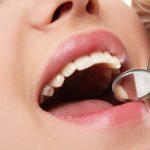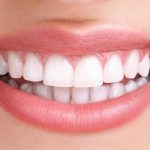When to Start Brushing Kids’ Teeth: Expert Tips for Healthy Smiles
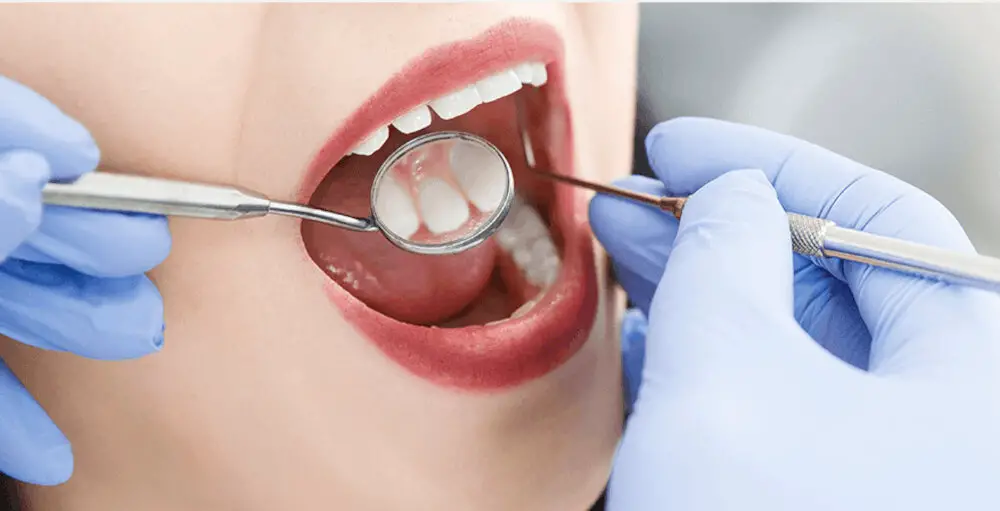
Maintaining a healthy smile is essential for overall health, and the foundation of good oral health starts in childhood. It is crucial to instill good dental habits in children from a young age to ensure that they carry those habits into adulthood. Brushing teeth is one of the most fundamental dental habits that children must develop, but many parents may be unsure about when to start brushing their kids’ teeth. According to experts, parents should start brushing their children’s teeth as soon as the first tooth appears, which is usually around six months of age. Parents can use a soft-bristled toothbrush and water to clean their baby’s teeth until the age of two years. From the age of two, parents can introduce fluoride toothpaste in small amounts, about the size of a grain of rice, to their child’s toothbrush. As the child grows and develops their oral hygiene routine, parents can increase the amount of toothpaste to a pea-sized amount. Starting early with brushing habits can help prevent tooth decay, gum disease, and other oral health problems. In this article, we will explore expert tips for parents to ensure that their children maintain healthy smiles for life by starting good brushing habits from a young age.
Dental hygiene is crucial for children’s overall health and wellbeing. Poor oral health can lead to a range of issues such as cavities, gum disease, and even tooth loss. Additionally, dental problems can cause discomfort and pain, making it difficult for children to eat, speak, and concentrate in school. Teaching children good dental hygiene habits at an early age can help prevent these problems from occurring. Regular brushing and flossing, along with regular dental check-ups, can keep teeth and gums healthy and free from decay. It’s important for parents to start teaching their children about dental hygiene as early as possible to ensure they develop good habits that will last a lifetime.
Dental problems are common in children, and parents should pay attention to their child’s oral health to prevent them. Some of the common dental problems in children include tooth decay, gum disease, and bad breath. Tooth decay occurs when bacteria in the mouth produce acid that damages the tooth’s enamel. Gum disease is caused by the buildup of plaque and tartar on the teeth, which can lead to inflammation and bleeding gums. Bad breath can be caused by poor oral hygiene, tooth decay, or gum disease. Parents should encourage their children to brush their teeth twice a day, floss daily, and visit the dentist regularly to prevent these dental problems.
When to Start Brushing Kids’ Teeth
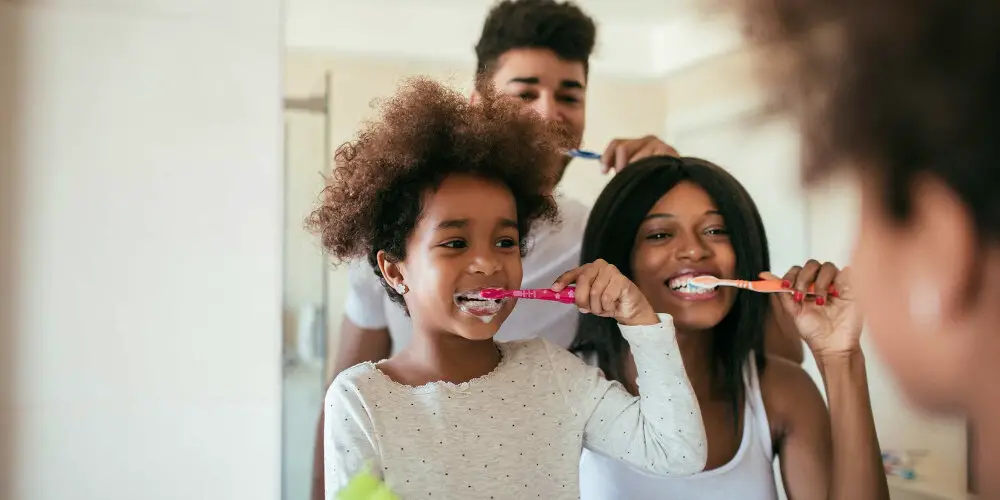
When it comes to oral hygiene, starting early is key to ensuring healthy teeth and gums for a lifetime. Many parents wonder when they should start brushing their children’s teeth, and the answer is earlier than you might think. Experts recommend starting oral care as soon as a baby’s first tooth appears, which can be as early as six months old. At this stage, parents can begin by using a soft, damp cloth to gently wipe their child’s gums and teeth. As more teeth come in, a small toothbrush with soft bristles can be used to gently clean the teeth and gums twice a day. Establishing good oral hygiene habits from a young age is crucial for preventing tooth decay and promoting healthy teeth and gums. Parents can help their children develop these habits by making tooth brushing a fun and positive experience. Singing songs, using fun toothbrushes, and rewarding good behavior can all help make brushing a part of a child’s daily routine. It’s also important to supervise young children while they brush to ensure that they are using the proper technique and not swallowing toothpaste. By starting oral care early and making it a positive experience, parents can set their children up for a lifetime of healthy smiles.
Age recommendations for brushing kids’ teeth are essential to ensure healthy smiles. Most dentists advise that children should start brushing their teeth twice a day as soon as their first tooth erupts. This usually happens between six to eight months of age. Parents should use a small, soft-bristled toothbrush and a pea-sized amount of fluoride toothpaste to brush their children’s teeth. As children grow, they should be encouraged to brush their teeth independently, but parents should supervise their brushing until they are around seven or eight years old. It’s crucial to establish a regular brushing routine from an early age to prevent tooth decay and gum disease. By following these age recommendations, parents can help their children maintain healthy and beautiful smiles for life.
Ensuring that children have healthy teeth and gums is an important part of their overall health. Parents often wonder when to start brushing their child’s teeth. Signs of readiness can include when the first tooth appears, which is usually around six months of age. It is important to start brushing as soon as possible to prevent tooth decay and to establish a good oral hygiene routine. Other signs of readiness include the ability to sit up and hold their head steady, as well as an interest in the toothbrush and toothpaste. Parents should also be aware of any changes in their child’s oral health, such as discoloration or sensitivity, which may require a visit to the dentist. By starting early and establishing good habits, parents can help their children maintain healthy teeth and gums for a lifetime.
Baby teeth, also known as primary teeth, play a crucial role in a child’s oral health development. They help children to learn to chew properly, speak clearly, and maintain a healthy diet. Baby teeth also serve as placeholders for permanent teeth and guide their growth. Neglecting to care for baby teeth can lead to tooth decay, which can cause pain, infection, and even affect the development of permanent teeth. It is important for parents to start practicing good oral hygiene habits early on, including brushing and flossing their child’s teeth, to set them up for a lifetime of healthy smiles.
How to Brush Kids’ Teeth

Brushing your kid’s teeth is important to keep their teeth and gums healthy. When they are infants, you can clean their gums with a soft washcloth or gauze pad. As soon as their teeth start to come in, usually around 6 months, start brushing their teeth twice a day with fluoride toothpaste. Use a pea-sized amount of toothpaste and a soft-bristled toothbrush. Make sure to brush all surfaces of their teeth, including the backs and fronts of their teeth, and the chewing surfaces. Help your child brush their teeth until they are able to do it themselves, usually around age 6 or 7. Encourage them to spit out the toothpaste but not to rinse with water, as this can wash away the fluoride and reduce its effectiveness. It can also be helpful to make brushing teeth a fun activity for your child. Sing a song or play a game while you brush their teeth. Let them choose their toothbrush and toothpaste, as this can make them more excited to brush their teeth. You can also reward them for brushing their teeth well, such as with stickers or a small toy. Remember to set a good example by brushing your own teeth regularly in front of your child. By making brushing teeth a positive experience, your child is more likely to develop good oral hygiene habits that will last a lifetime.
There are several techniques for brushing that parents can use to promote healthy teeth and gums in their kids. One common technique is the circular motion, which involves moving the toothbrush in small circular motions across the teeth and gums. Another technique is the back-and-forth motion, which involves moving the toothbrush in a back-and-forth motion across the teeth and gums. Additionally, the up-and-down motion is also effective, which involves moving the toothbrush up and down across the teeth and gums. It is important to use a soft-bristled toothbrush and fluoride toothpaste while brushing, and to brush for at least two minutes twice a day. Parents should also supervise their children while brushing to ensure they are using proper technique and brushing all areas of their mouth.
When it comes to selecting a toothbrush and toothpaste for kids, there are a few things to keep in mind. First, choose a toothbrush with soft bristles that are gentle on their teeth and gums. Look for a toothbrush with a small head that can easily reach all the nooks and crannies of their mouth. Secondly, opt for a toothpaste that contains fluoride, which helps strengthen their teeth and prevent cavities. Ensure to choose a flavor that your child enjoys as this can encourage them to brush regularly. Lastly, consider the age of your child when selecting a toothbrush and toothpaste, as there are specific products designed for infants, toddlers, and older children. By selecting the right toothbrush and toothpaste, you can help promote good oral hygiene habits and keep your child’s smile healthy.
The frequency of brushing is a crucial element in maintaining healthy teeth and gums. Dentists recommend that children should brush their teeth twice a day, once in the morning and once before bedtime. Brushing your teeth removes food debris and plaque that can lead to cavities and gum disease. Parents should supervise their children’s brushing until they are able to do it effectively on their own, usually around the age of 7 or 8. Additionally, using fluoride toothpaste can help strengthen tooth enamel and prevent decay. By establishing good brushing habits early on, children can maintain healthy teeth and gums for a lifetime.
Tips for Encouraging Good Dental Habits
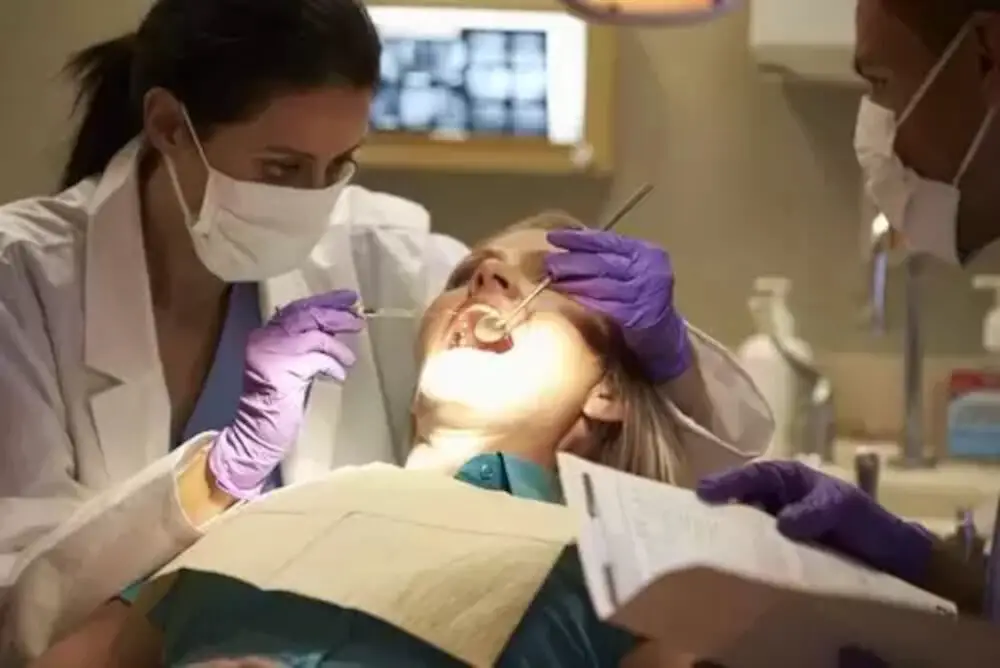
Good dental habits are essential for maintaining healthy teeth and gums. As a parent, it’s your responsibility to encourage your children to develop these habits from an early age. One way to do this is by setting a good example. Children learn by watching their parents, so make sure you brush and floss your teeth regularly and visit the dentist for checkups. You can also involve your child in your oral hygiene routine by letting them watch you brush your teeth or have them brush their teeth alongside you. Additionally, make brushing and flossing a fun activity by playing music or using a timer to make sure your child brushes for the recommended two minutes. Another way to encourage good dental habits is by making sure your child has the right tools. This includes a soft-bristled toothbrush that’s the right size for their mouth, fluoride toothpaste, and floss. Let your child choose their own toothbrush and toothpaste to make brushing more exciting for them. You can also try using fun toothbrushes with cartoon characters or bright colors to make brushing more enjoyable. Additionally, limit sugary snacks and drinks, which can lead to tooth decay, and encourage your child to drink plenty of water. By following these tips, you can help your child develop good dental habits that will last a lifetime.
Making brushing fun is essential to encourage children to develop good oral hygiene habits. Kids are more likely to brush their teeth if they enjoy the activity. Parents can make brushing time enjoyable by incorporating games, songs, and colorful toothbrushes. Singing songs while brushing can make the experience more pleasant and entertaining. Parents can also play games with their children, such as seeing who can brush their teeth the longest or the most thoroughly. Additionally, colorful toothbrushes can make brushing time more exciting for kids. Parents can also use toothpaste with fun flavors, such as bubble gum or strawberry, to make brushing more enjoyable. By making brushing fun, children are more likely to brush their teeth regularly, leading to a lifetime of healthy smiles.
Modeling good dental habits is crucial in ensuring that children develop healthy teeth and gums. Parents should start setting an example as early as possible by making dental care a part of their daily routine. This includes brushing and flossing regularly, using fluoride toothpaste, and scheduling routine dental checkups. Children are more likely to adopt these practices if they see their parents doing the same. It is also important to make brushing fun and engaging for kids by using colorful toothbrushes and flavored toothpaste. By establishing good dental habits early on, parents can help their children maintain healthy smiles for years to come.
Reward systems can be a great way to motivate kids to start brushing their teeth regularly. For example, parents can create a chart or a calendar where kids can track their progress and earn stickers or small rewards for each day they brush their teeth. Alternatively, parents can offer a bigger incentive, like a toy or a treat, for reaching certain milestones, such as brushing for two weeks straight or going to the dentist without any cavities. However, it’s important to keep in mind that rewards should not replace the importance of good oral hygiene habits, and parents should still emphasize the importance of brushing and flossing for overall health and well-being.
Common Dental Problems in Children

Dental problems in children are quite common and can cause discomfort, pain, and even affect their overall health. One of the most common dental issues in children is tooth decay, which can occur due to poor oral hygiene, sugary diets, and lack of fluoride. Tooth decay can lead to cavities, which can be painful and affect the child’s eating habits and speech development. It is crucial to teach children the importance of brushing their teeth twice a day and flossing regularly to prevent tooth decay and cavities. Another common dental problem in children is gum disease, which can occur due to the buildup of plaque and bacteria around the gum line. Gum disease can cause inflammation, bleeding, and even tooth loss in severe cases. Parents must encourage their children to brush their teeth gently and use mouthwash to prevent the buildup of plaque and bacteria. Additionally, regular dental check-ups can help detect and treat gum disease before it becomes a severe problem. By addressing these common dental problems early on, parents can help their children maintain healthy and beautiful smiles for years to come.
Cavities, also known as dental caries, are areas of tooth decay caused by bacteria that produce acid which damages the tooth enamel. Cavities can lead to toothache, sensitivity, and even tooth loss if left untreated. They are more common in children because their teeth are still developing and the enamel is not as strong as adult teeth. Good oral hygiene practices, such as brushing and flossing regularly, can help prevent cavities. It is important to start teaching children good oral hygiene habits from a young age to ensure a lifetime of healthy smiles.
Gum disease, also known as periodontal disease, is a common oral health issue that affects the gums and surrounding tissues. It is caused by the buildup of plaque on the teeth, which leads to inflammation and infection. Gum disease can range from mild gingivitis to more severe periodontitis, which can cause tooth loss if left untreated. Symptoms of gum disease include red, swollen, or bleeding gums, bad breath, and receding gums. It is important to practice good oral hygiene habits, such as brushing and flossing regularly, to prevent gum disease.
Tooth decay is a common dental problem that occurs when bacteria in the mouth produce acid that attacks the enamel of the tooth, causing it to erode. This can lead to cavities and tooth sensitivity, which can be painful and affect a child’s ability to eat and speak properly. Poor dental hygiene, a diet high in sugar and carbohydrates, and a lack of fluoride can all contribute to the development of tooth decay. It’s important for parents to start brushing their children’s teeth as soon as the first tooth appears and to encourage healthy dental habits early on. Regular dental checkups and cleanings can also help prevent tooth decay and ensure a child’s smile stays healthy and bright.
Orthodontic issues can arise when children’s teeth are not properly cared for. These issues can include overcrowding, crooked teeth, and bite problems. Early intervention can prevent these problems from becoming more severe and difficult to correct in the future. Brushing and flossing regularly can help prevent tooth decay and gum disease, which can contribute to orthodontic issues. It’s important to establish good oral hygiene habits early on and to schedule regular dental check-ups to ensure your child’s teeth and gums are healthy. Orthodontic treatment can be expensive and time-consuming, so taking preventive measures can save your child from discomfort and inconvenience down the road.
Maintaining good dental hygiene is crucial for children’s overall health and well-being. Poor dental hygiene can lead to tooth decay, gum disease, and other serious oral health problems that can affect a child’s development and quality of life. Parents should start brushing their child’s teeth as soon as the first tooth appears to prevent the buildup of harmful bacteria and plaque. Regular dental checkups and cleanings are also important for detecting and treating any issues early on. Encouraging healthy habits, such as limiting sugary snacks and drinks and promoting regular brushing and flossing, can help children maintain good dental hygiene and prevent dental problems in the future. By prioritizing dental hygiene, parents can set their children up for a lifetime of healthy smiles.
Starting good dental habits early on is crucial for children’s healthy teeth and gums. It is recommended to start brushing a child’s teeth as soon as the first tooth appears, and to introduce flossing as soon as two teeth touch each other. Parents should supervise brushing until their child is able to do it independently, usually around the age of 8. By establishing a routine and making dental care a priority, children will develop healthy habits that will last a lifetime. Good dental habits early on can prevent cavities, gum disease, and other oral health problems, and can lead to a brighter, healthier smile. Parents can encourage their children by making brushing and flossing fun with colorful toothbrushes, fun music and by praising them for their efforts.
In addition to starting dental care early, it’s important to establish good habits and maintain consistency. Encourage your child to brush twice a day for two minutes each time, using fluoride toothpaste. Help them brush until they have the dexterity to do it on their own. Flossing should also be incorporated into their routine once they have two teeth that touch. Regular dental check-ups and cleanings are essential for maintaining healthy teeth and gums. And finally, be a good role model by practicing good oral hygiene habits yourself and making dental care a priority for the whole family. By following these tips and advice, you can help ensure your child has a healthy smile for life.
Conclusion
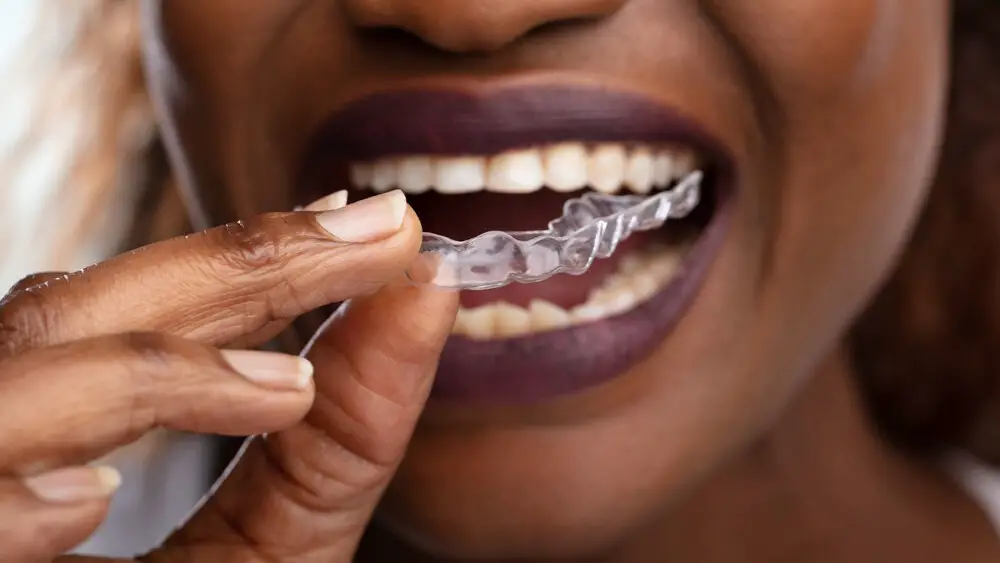
In conclusion, it is crucial to start brushing kids’ teeth as early as possible to establish healthy oral hygiene habits. Experts recommend starting as soon as the first tooth appears, using a small amount of fluoride toothpaste and a soft-bristled brush. Parents should supervise their children’s brushing until they are old enough to do it independently and ensure they brush twice a day for two minutes each time. Establishing good brushing habits from a young age can help prevent tooth decay, gum disease, and other dental problems, leading to a lifetime of healthy smiles. So, start early, be consistent, and prioritize your child’s dental health.




